The following is a guest post from Cathy Byrd, author of The Cathy Byrd Project Substack. Cathy is a seasoned art and travel writer currently serving in Peace Corps Moldova. Follow her newsletter for essays on art, culture, and her life so far.
Remember when I wrote about The Key to Everything? How learning a local language opened hearts and doors to me in West Africa while I was there teaching English with the Peace Corps? I assured you that even just knowing the basics made a tremendous difference. Now, I’m wondering…is my conviction well-grounded, or has the passage of time lovingly smudged and softened my memories from the 1970s?
Today, 40-odd years later, I find myself in the Peace Corps once again. This time, in Moldova. I’m going solo for the first time on a foray outside Chișinău. I’ll test my theory in the 21st century. It’s a sunny Sunday morning in the full blush of spring. As I walk to the Central Bus Station, locals stream across my path making beelines in every direction. The station sits at the edge of the city’s busiest open-air market, abuzz with merchants, shoppers, and travelers. In the story you’re about to read, there are moments of self-induced drama and distress. There’s a desert of despair to cross, followed by a bumpy stretch of country roads. And finally, there will be pure light, fresh air, and a deep sense of peace. Stay with me, as I go the distance (a mere 45 kilometers) to reach the bright green energy field I set out to find.
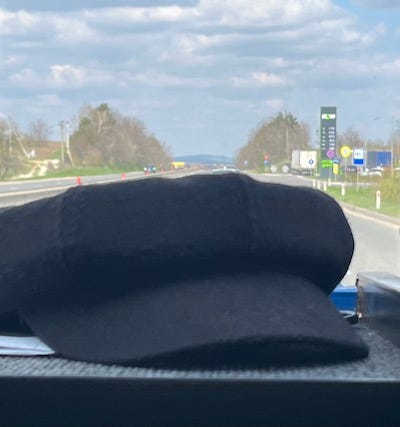
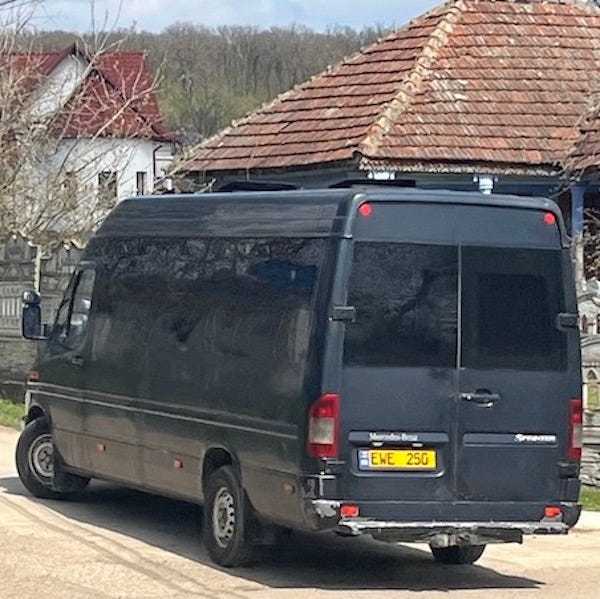
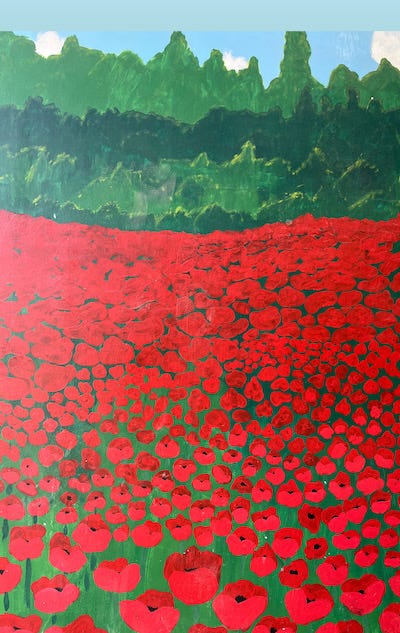
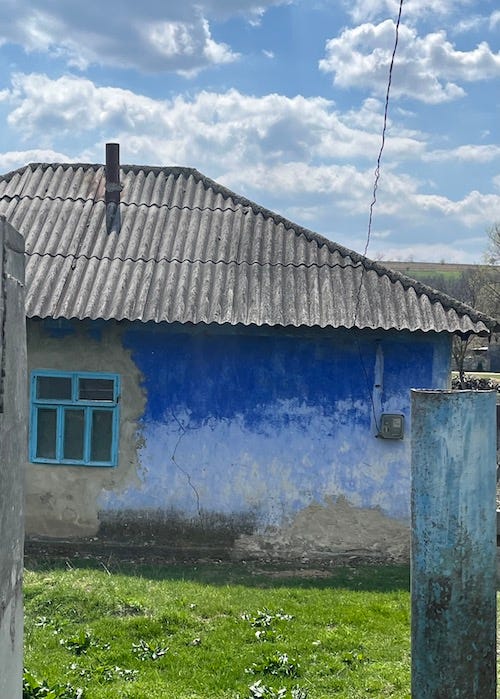
My day trip is meant to be easy. I will take a marshrutka (privately owned minibus) to reach Eco Village Moldova. There, I will join others to fête the 4th birthday of their NGO partner Eco Visio. Ready, Set, Go, I think. Two locals coach me. I learn the schedule and route, memorize my script, and save my itin in Romanian on my mobile. When I arrive at my starting point 20 minutes early with cash in hand for my ticket, I am psyched. What happens next resonated all too deeply with what former Peace Corps volunteer David Smith remembers in this January 2025 article—14 years after navigating his early days in Kazakhstan while not knowing Russian.
I breeze into the main terminal and proceed to go absolutely nowhere. Standing in one line after another, I approach cashier after cashier, dismissed each time with a head shake and a vague hand gesture. The word “drepte” (right), and other—surely more precise, directives, fly past my untrained ears.
Minutes tick by. I’m almost certain to miss the 11:50 minibus. Whatever happened to the Moldovan hospitality I’ve cherished since my arrival? I’m devastated by my inability to navigate a simple transaction. My smile, my deference, my Romanian. All epic fails!
Time for an SOS. I call Liliana at the village. No answer. She calls back. I learn the missing bit of intel: There’s a ticket kiosk on Strada Bulgara for minibuses with routes off the beaten path. She suggests I hand my mobile to any driver standing nearby so she can help them guide me. “Va rog (Please)?” I venture. Drivers take turns shrugging me off. Luckily, I’m wearing sunglasses. Because tears. Ten minutes later, I find a woman willing to play charades. She holds my phone and listens, then points me toward the elusive kiosk two blocks away.
I race up the street. My phone rings. It’s Liliana: “Look for the black minibus with the license plate EWE 230. Don’t worry about a ticket. Just get in. Pay the driver cash.” I stand at the intersection and spin. I spot my ride, hurry over, and step into the dark, cramped interior. Villagers stare up at me from every seat. “Nu spatiu.” No room. No matter. I’m not budging.
It turns out that a wonky seat next to the driver is free. I ease his bag—weighted with a week’s worth of shopping—to the floor. I settle, close my eyes, and take a deep breath. We’re on the road. As we wend our way in and out of villages to drop off and pick up passengers, the tension inside me slowly melts away.
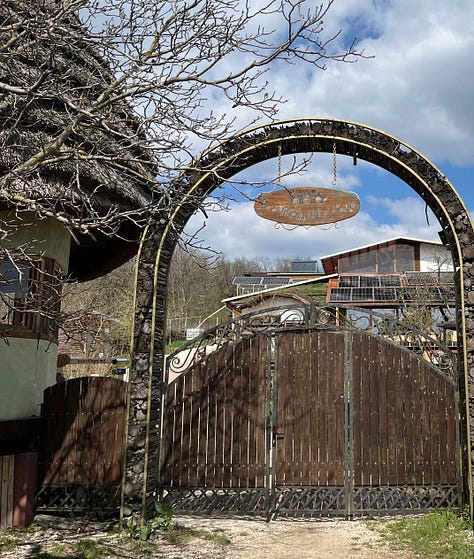
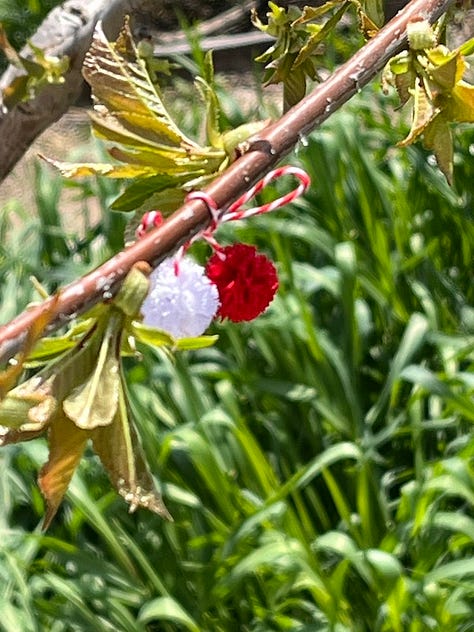
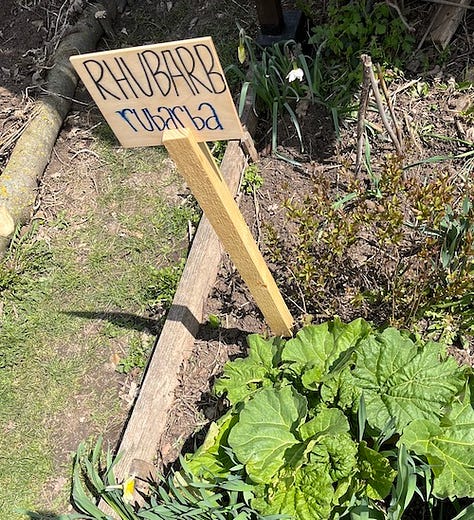
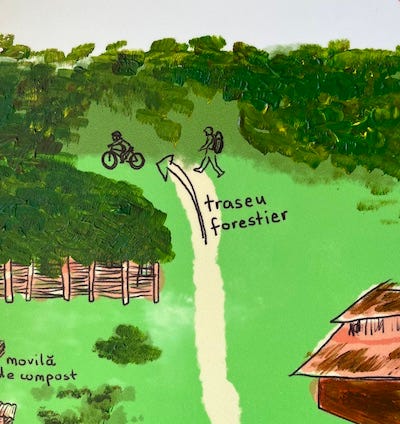
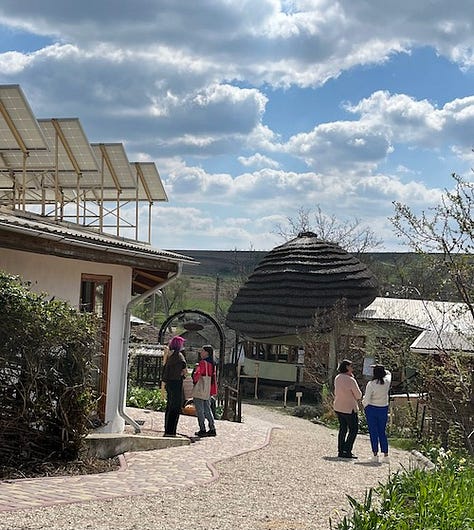
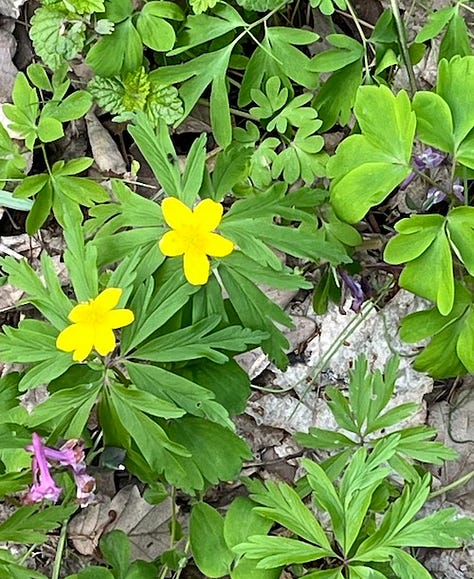
An hour later, we stop in Rișcova. I step down into the street next to the village school. The bus shelter mural is bursting with bright red poppies. I follow the main road until it ends at the Eco Village gate. Inside, I look up at the village’s magic mushroom—the thatched roof building at the entrance. I gaze into the humming hand-built apiaries and eye the freshly seeded garden. In the building marked “training center,” visitors have gathered to eat and drink, to listen and share. There will be singing and seed bombs, flower planting, and a forest hike.
But first, I sit on a low stone wall in the sun, closing my eyes to commune with this place. I can feel the green vibration. Breathe in, peace and calm. Breathe out, release and relax. As the afternoon unfolds, I let a sense of clarity and light fill me from head to toe. I meet sincere new friends. I eat beautiful homegrown food. I drink homemade herbal teas and fruit elixirs. When it’s time to go, I know I’ll find my way back, and soon, for a deeper infusion of this good energy.
Read The Key to Everything.
Learn more about Eco Village Moldova.
My views do not necessarily reflect the opinions of the Peace Corps or the U.S. government.





I too arrived in Moldova for my second tour in the PC some 40 years after my first tour in Bolivia. This was in 2008. Missed many a bus because folks had a hard time understanding. Say hi to Lilliana for me .